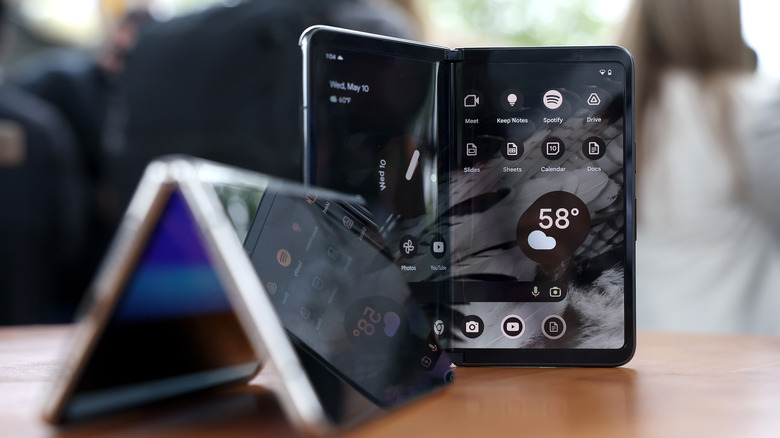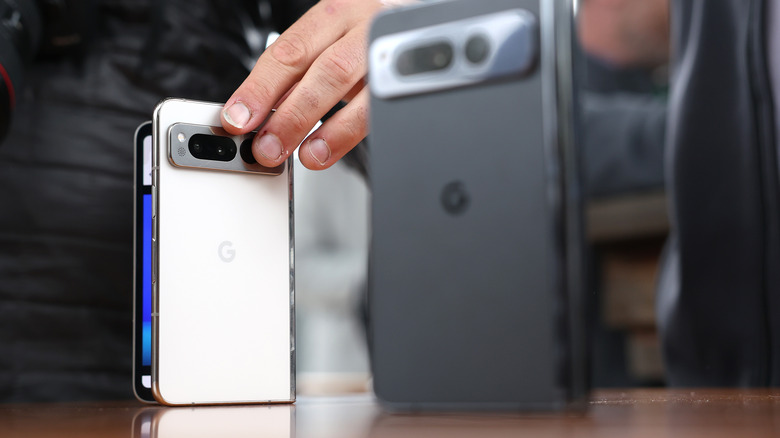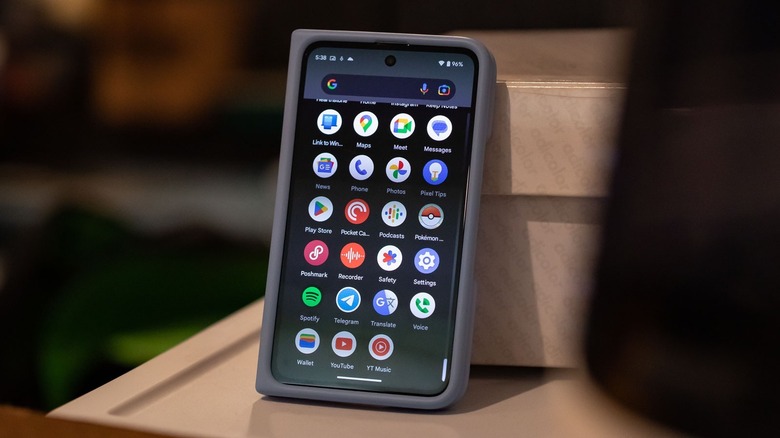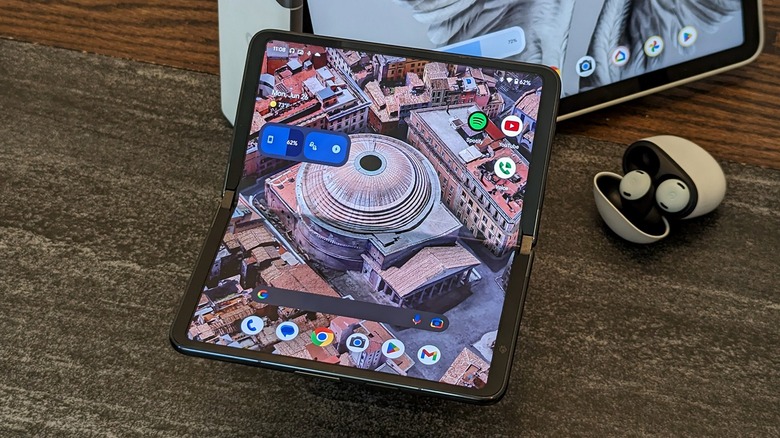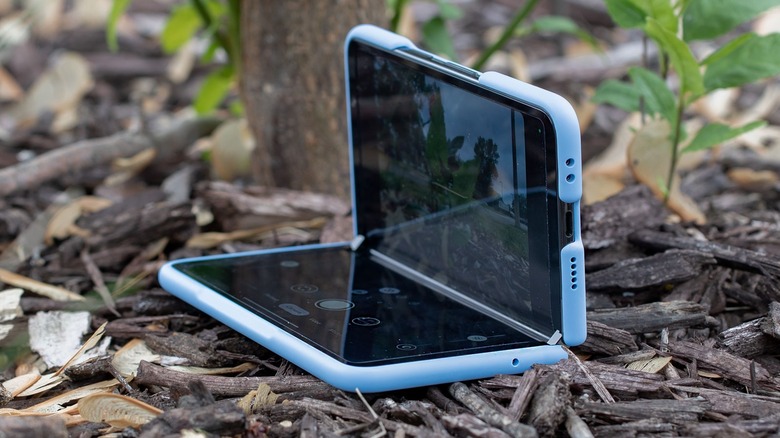Google Pixel Fold 2: Everything We Know So Far
Google has been launching exclusive phones since the early days of Android, and now it's competing against other OEMs in the foldable market. It started in 2010 with the Nexus devices, meant to provide Google's ideal smartphone experience, manufactured by Google's partners. But in 2016, the Nexus was nor more as the search giant shifted its strategy with the launch of the first Pixel phone. The company was now designing its hardware in-house, along with custom versions of Android that were exclusive to the Pixel. Last year, the company expanded its efforts with the Pixel Fold.
Although Google's first foldable earned praise, the market is heating up. Today, companies like Samsung are seeing more competition from the likes of OnePlus and Motorola. Even Apple is rumored to be working on a foldable.
In the meantime, a probable release date for the second-generation Pixel Fold is fast approaching. Google launched the first Pixel Fold at its annual I/O developers' conference, and we expect it and many other Android goodies at this year's event, scheduled to start May 14.
We already think we know quite a bit about the upcoming Pixel Fold. Google is notoriously bad at keeping its upcoming phones a secret, and has even preempted leakers by sometimes releasing pictures of its devices. While that isn't the case this time, there's still plenty we can surmise about the Pixel Fold 2, from hardware upgrades to software tweaks. So, let's dive in.
The first Pixel Fold was a solid first-generation product
The first Pixel Fold, launched at last year's Google I/O, was a device that tech afficionados had long anticipated. Though foldables drew people's attention, their high price and fragile screens made them still seem underbaked. The Fold was Google's way of telling developers that it was serious about embracing the form factor.
The Pixel Fold had unique features that made it worth buying. In a form factor with two 120Hz OLED screens and a shape reminiscent of a Moleskin notebook, it stood out compared to its primary competitor at the time, the Samsung Galaxy Z Fold 4. Google also touted a unique hinge design that it claimed was more durable and also allowed water to pass through the chassis without touching or damaging the internals. Those internals? A Google Tensor G2 chipset and 12GB of RAM. Not too shabby.
The Pixel Fold was mostly well received, with Chris Burns at SlashGear giving it an 8/10. His main gripes included the unimpressive battery life and the price, which was about $1,700 at launch. But, he said the displays were crispy, the performance snappy, and the software acceptable.
For the second generation, it's clear Google needs to refine the Fold's exterior design, improve its batteries, and design software that reaches feature parity with the competition. So, let's move on to what we expect when Google unveils the Fold 2.
The Pixel Fold 2 is growing up
The first-generation Pixel Fold set itself apart from the foldable pack by being short and squat, but leaked photos of the Fold 2 indicate that it will get narrower and taller, growing closer in its dimensions to the Galaxy Z Fold 5 from Samsung.
The leak comes courtesy of an anonymous source who provided a photo to Android Authority. Importantly, the leaker heavily edited the photo, removing the background, blurring stickers with internal information, and making other edits. This was probably done to preserve the leaker's anonymity and job, but it throws into question the veracity of the leak all the same. Additionally, the photo was provided to the Android-centric news site back in early February, so it's impossible to determine what may have changed since then.
According to the leaker, the inner screen's aspect ratio will be close to a 1:1 square. Google also appears to be nixing the iconic "visor" style Pixel camera bar in favor of a more standard camera rectangle in the top left corner of the device's backside. Another leak, posted to X by @OnLeaks in late February, seems to confirm these design changes.
The Pixel Fold 2 will have improved specs
One thing that feels safe to speculate about regarding the Google Pixel Fold 2 is that it will have improved specs compared to last year's model. Google had equipped the previous version of the device with a Tensor G2 chip and 12GB of RAM. The RAM may get an increase this year, and we do also expect to see a bump on the chipset.
In fact, new leaks suggest that the Fold 2 may skip the expected Tensor G3 that came in the Pixel 8 series and instead come equipped with the even newer Tensor G4, according to a report by Android Authority.
Google has a lot of reason to push as hard as it can with next-generation hardware. The company has been pushing AI in many of its products over the past couple years, as startups like OpenAI and longtime competitors like Microsoft and Meta ramp up their own efforts. Google has focused on making its in-house Tensor chips AI-capable, and the G4 would likely continue that trend. We also expect Google I/O to see some AI features announced with deep integration into Android 15, and what better device to launch them on than a bleeding-edge foldable?
What else Google might improve for Pixel Fold 2
Of course, all of this information is based on leaks and could change when and if Google finally unveils the Pixel Fold 2 on May 14 at Google I/O 2024. But based on the reception and sales of the first Fold, there are a few things the tech giant needs to get right this time around if it wants to push more phones.
First, the unique design of the Pixel Fold necessitated its rather chunky bezels, but the industry is increasingly embracing slimmer borders. We're hoping those bezels are pared down in this new design.
Second, due to widespread complaints about the Fold's battery life, the Fold 2 should hopefully have a larger battery and more software optimization.
Oh, and of course, we'd like to see the price drop to something more affordable for the average consumer.
Given Google's recent flag-planting around its AI capabilities, we also expect the company to start leaning heavily on its competitive advantage in the market. If the phone ships with a Tensor G4 chip, which likely has a better NPU module than the G3, that means it will have much better on-device AI performance. With Google giving away AI photo editing features, releasing Gemini as a phone assistant, and more, the world is waiting to see what's next from a company that has put AI on the forefront for so many years.
